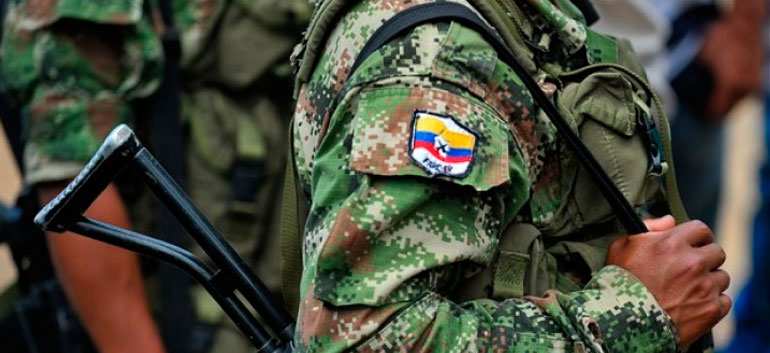Colombia’s largest rebel group FARC said the guerrillas “profoundly regret” the killing of two indigenous guards by FARC members last week.
The two guards were killed by seven guerrillas after taking down a billboard commemorating slain FARC leader “Alfonso Cano.” The rebel group has been commemorating the three-year anniversary of the top rebel’s death.
MORE: FARC accused of killing 2 members of southwest Colombia indigenous community
In a statement released Tuesday, the FARC issued its condolences while telling their side of the story that caused indignation across the country.
“We profoundly regret this fatal outcome, we express our condolences to the families of the deceased guards and to the entire community, while making it clear, once again, that our fight has never been and never will be against the indigenous and social movements,” the command of the FARC’s Western Bloc said on the rebels’ website.
According to the FARC, the indigenous guards were not just taking down and burning posters, but also trying to arrest guerrillas which forced a violent response from other rebels trying to release their comrades from the indigenous’ guards’ captivity.
The guerrillas said the guards “in incomprehensible behavior, were sent in pursuit of the militants to take their weapons and detain them.” According to the statement, this attempt to disarm and detain the guerrillas is what led to the fatal shooting.
After the incident, seven FARC rebels who allegedly took part in the killing were detained by the community. They were put on trial by the local indigenous authorities and sentenced up to 60 years in prison in accordance with indigenous law in the area. Minors were sentenced to 20 lashes.
MORE: Indigenous community sentences FARC ‘killers’ to decades in prison
The incident drew the attention of the United Nations which issued a statement demanding that the FARC respect the rights of Colombia’s indigenous groups. The UN expressed concern that the killings violate of the rights to life, personal safety, and self-governance on the part of the indigenous community. The statement also called on the other parties involved in Colombia’s conflict to respect human rights in general.
MORE: UN demands FARC respects rights of Colombia’s indigenous population
The sentencing added to growing concerns over human rights. The UN expressed its concern over the accused rebels’ rights to due legal process. UN representative Fabrizio Hochschild noted that the rebels were not provided the right to a defense and were unable to appeal the verdict.
MORE: UN Concerned Over FARC Guilty Verdict In Indigenous Court
The FARC has previously denied any violations of international humanitarian law at any point in the conflict.
MORE: FARC denies having committed war crimes against civilians
The group, founded in 1964 with the intention of overthrowing the government and installing a Marxist regime, are currently negotiating peace with the administration of President Juan Manuel Santos. However, rebel attacks are continuing as both warring parties failed to agree to a ceasefire for the duration of the talks.
Lead government negotiator Humberto de la Calle called upon the FARC to cease all such hostilities as a demonstration of good faith for the peace talks process.
“Society needs concrete facts that demonstrate the FARC’s desire for peace,” he stated in a press release from the Peace Commissioner’s office. “We are not in Cuba to validate the use of violence, or the methods of the FARC that we Colombians repudiate. we are in Havana to overcome the conflict, to reach an agreement and to open a phase of construction of a firm and lasting peace.”
Sources
- Colombia Farc rebels ‘sorry’ over tribal leaders’ murder (BBC)
- Comunicado (FARC-EP)
- Email Communique (Office of the High Commissioner for Peace)



